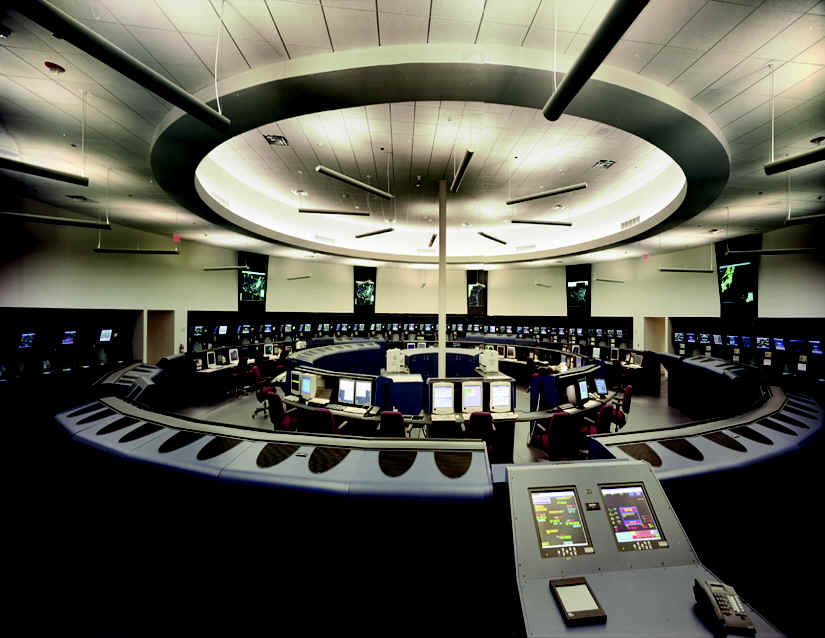Podcasting is necessary for companies with complex ideas to share.
To survive and thrive in marketing today you must embrace your complexity and successfully communicate it to the world. This means, firstly, that you require a medium that can capture both the detail and people’s attention. Secondly, to utilize that medium to its full potential , you need a creative team that can reckon with and package the complexity of your company and your ideas into something special.
The Law of Requisite Variety
The “Law of Requisite Variety” is a concept from the field of cybernetics. Cybernetics is much misunderstood: people hear the term and think cyborgs and cyberspace, when in fact cybernetics is simply the study of control systems. A control system’s job is to maintain a certain set of affairs in some other system: think thermostats (maintaining temperature), the steering wheel on your car (direction), or air traffic control (avoiding plane crashes).
The study of control systems is interesting enough to be its own field because control systems are complex. Take something as simple as steering your car: if you go off course you have to correct, but you must do so with care so as to avoid over-correcting or losing traction by turning the wheel too quickly. Steering is actually very hard, and we unconsciously process masses of information to steer successfully. In systems more complex than driving, things get much harder.
One of the bedrocks of cybernetics is the concept of “requisite variety.” To illustrate: imagine you’re tasked with air traffic control for a given airport. Your mission is to avoid collisions and crashes, and to facilitate takeoff and landing. How do you do it?
Most air traffic control systems track the location and heading of each aircraft they need to manage. Today we use computers, but you could, if you wanted to, use a table with model planes like in war movies. At base, your system needs to have a map; this map must have some representation of each thing that you care about. When you want to manage, or at least understand, a system, your map needs to have a representation of all of the functional units you care about. Or, in cybernetic terms, it must have “requisite variety”.
“Variety” refers to the amount of things a particular system can do. For example, the “parking arm” gate on a car park can be either up or down: it has tiny variety. Now, think about the variety of an airport: hundreds of planes, all with headings and locations that affect other planes in their area. The variety demanded of an air traffic control system is massive.
Managing Variety
Variety gives and takes: the more variety a system has, the more it can do. At the same time, the more variety a system has, the harder it is to control and the more there is to go wrong.
Take food, for example: if you give a chef unlimited decision-making power in the kitchen, there is essentially no upper limit for how good the food can be: but nor is there a lower limit on how bad it can be. This means that when a restaurant can guarantee a good chef, they typically give them significant autonomy. When a restaurant can’t, they establish a production line kitchen.
Indeed, a good chef can only do their best work when they have high variety and room to experiment, and a teenager with little experience can usually only do a decent job when they have low variety and no room to make mistakes.
The restaurant White Castle invented the production line approach in the 1920s. It is a very generative innovation: it enables them to provide quick, affordable meals to customers, and jobs and valuable knowledge to people without work experience.
| Artisan Kitchen | Production Line Kitchen | |
| Variety | High | Low |
| Priority | Talent Maximization | Mistake Reduction |
We can generalize this to the form: when presented with a high variety problem, a manager can either come with a high variety solution, such as hiring a talented person and giving them significant freedom, or finding a way to reduce the variety, like establishing a production line where tasks are trivial and workers interchangeable.
Variety and Marketing
The same concerns reveal themselves when it comes to marketing: if you’re in a high-variety field like technology, you must either build high-variety strategies to speak to your market, or reduce the variety somehow. Indeed, most companies do a lot of both and a lot of in-between, with all the associated trade-offs.
IBM is an excellent example. On one end of the spectrum, the company provides buyers considering its Db2 database solution a product page including PDF briefs, a knowledge center, documentation, case studies and more. On the other end is its motto: “THINK.”
In the first example, the company anticipates a decision-maker at a large company with an eye-watering database need (such as significant scale, complexity, speed) and hence eye-watering variety, and meets them where they are. In the second, they speak to as wide an audience as possible by aggressively reducing the variety of their services to a single word.
IBM makes a lot of podcasts. Why? Companies with complex offerings need a medium to match. Written material falls short: social and blogs don’t have enough detail, and only a fraction of your audience will devote the time necessary to read your white papers.
Podcasting is the solution, because people can listen to a podcast while doing something else. Indeed, listening in the shower or while walking the dog can actually help the listener to lower their guard a little and thereby more easily identify with the host and the brand.
Podcasts are, thus, amazing: they have significant information density, but people actually like them. The trouble is, it is really hard to make a good podcast.
Creating a Podcast that People Actually Want to Listen to
This of course raises the question, how? Nobody is going to listen to a podcast in their car or the shower that they don’t actually like. People don’t like things that are dry and tedious. They like things that make them think, that entertain as they educate, and that create connections in their mind that they can bring to the conversations of the day.
This is where the principle of requisite variety is back. Remember, when confronted with a high-variety situation (such as creating a podcast) there are two approaches: reduce the variety, or bring in a team that thrives in such a situation.
Many of our competitors operate podcast production lines. This is to say that their trust in their team and/or clients is so low that they value process over inspiration and ideas, employ interchangeable team members and produce interchangeable products. There’s little opportunity for thinking/freedom when it comes to the fundamentals: idea, format, talent, sound design; the result is about as undifferentiated as one White Castle slider from another. (This is not throwing shade: White Castle sliders are supposed to be totally consistent, podcasts are not.)
At CitizenRacecar, we take the opposite approach: we treat our team like gourmet chefs, and we take time—lots of time—and we think—hard—about exactly what we need to create that will actually deliver the goods and keep people listening. We don’t rely on rigid systems to derive consistent results from beginners; we get outstanding results because we hire talented people and give them freedom. We’re here to embrace your complexity with you.
(Oliver Cox is Business Development Lead at CitizenRacecar)
Image credit: Wikipedia






